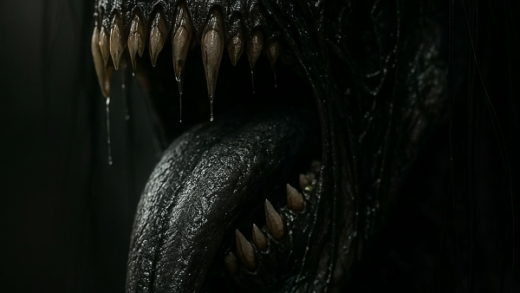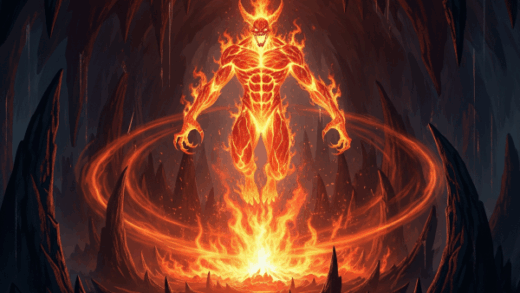
En no Ozunu, also known as En no Gyōja, is a semi-legendary Japanese figure from the 7th century, renowned as the founder of Shugendō—a syncretic spiritual tradition blending elements of Shinto, esoteric Buddhism, Taoism, and traditional Japanese shamanism.
His life and deeds, though shrouded in myth, have left an indelible mark on Japanese religious culture.
Historical Background
Born in 634 in Katsuragi (modern-day Nara Prefecture), En no Ozunu was reputedly a charismatic ascetic and mystic. Historical records, such as the Shoku Nihongi (Chronicles of Japan Continued), mention that in 699 AD, he was exiled to Izu Ōshima on allegations of practicing sorcery.
Despite this, his legacy endured, and he was later venerated as a saintly figure with extraordinary abilities.
Shugendō and Spiritual Practices
Shugendō, the spiritual tradition attributed to En no Ozunu, emphasizes ascetic practices in mountainous regions to attain spiritual powers and enlightenment. Practitioners, known as yamabushi, engage in rigorous rituals, including fasting, meditation, and physical endurance exercises, often in secluded natural settings.
This tradition reflects a profound connection to nature and the belief in the sacredness of mountains as sites of spiritual power.
Legends and Mythology
Numerous legends surround En no Ozunu, highlighting his supernatural prowess. One popular tale describes his subjugation of two demons, Zenki and Goki, who initially terrorized the local populace.
Through his spiritual strength, En no Ozunu transformed them into protective deities who became his loyal servants, symbolizing the harmonization of chaotic forces through spiritual discipline.
Cultural Impact
En no Ozunu’s influence permeates various aspects of Japanese culture:
- Festivals: During Kyoto’s Gion Festival, one of the floats, known as En no Gyōja Yama, is dedicated to him, attracting practitioners who perform rituals in his honor.
- Literature and Media: His character has been featured in novels, manga, and films, often depicted as a powerful mystic or spiritual guide. For instance, in the anime “Zenki,” En no Ozunu is portrayed as the master of the titular demon protagonist.
Modern Interpretations
In contemporary times, En no Ozunu’s legacy continues to inspire spiritual seekers and cultural enthusiasts. Shugendō practices have experienced a revival, attracting individuals interested in ascetic disciplines and nature-based spirituality.
Pilgrimages to sites associated with him, such as Mount Katsuragi and Mount Yoshino, remain popular, reflecting enduring respect for his contributions to Japan’s spiritual heritage.
En no Ozunu’s life, interwoven with history and myth, exemplifies the rich tapestry of Japanese religious traditions. His story underscores themes of spiritual resilience, the transformative power of ascetic practices, and the harmonious integration of diverse religious elements into a cohesive practice that continues to resonate in modern times.
En no Ozunu, also known as En no Gyōja, has been depicted in various forms of media, reflecting his significant influence in Japanese culture. Here are some notable examples:
Books: Based on En no Ozunu
- “Jinben: En no Ozunu Emaki” by K. Yamamoto (山本兼一)
- Description: This Japanese-language novel delves into the life and legends surrounding En no Ozunu, exploring his role as the founder of Shugendō and his mystical practices.
- Availability: Available in select Japanese libraries and bookstores. discover.bklynlibrary.org
- “Myths of Oz” by Rufa Japan Amateur Historian
- Description: This book offers a collection of Japanese myths, including tales of En no Ozunu, providing insights into his legendary feats and spiritual journey.
- Availability: Available on Amazon in Kindle format. en.wikipedia.org+4amazon.com+4kvshanahan.com+4
Movies and Television:
- “Ninja Assassin” (2009)
- Description: This action film features a character named Lord Ozunu, portrayed by Sho Kosugi, who leads a clan of assassins. While not a direct depiction of En no Ozunu, the character draws inspiration from the legendary figure’s association with ninjutsu and mysticism.
- Availability: Available for streaming on various platforms. fr.wikipedia.org
- “Zenki” (1995)
- Description: In this anime series, En no Ozunu is portrayed as the master of the demon guardian, Zenki. The storyline revolves around his descendant, Chiaki Enno, who summons Zenki to combat evil forces, reflecting the enduring legacy of En no Ozunu’s mystical powers.
- Availability: Episodes may be found on anime streaming services and DVD collections.
- “Bohachi Bushido: Code of the Forgotten Eight” (1973)
- Description: This Japanese film features a character named Kurokuwamon no Ozunu, portrayed as a ninja leader. While the connection to En no Ozunu is nominal, the character embodies themes of mysticism and martial prowess associated with the legendary figure.imdb.com
- Availability: Available through select classic film distributors.
These works highlight the cultural impact of En no Ozunu, illustrating how his legend continues to inspire storytelling across various media forms.







